After kicking off the day with a spirited early morning demonstration outside the San Francisco Superior Court building, about a hundred City College of San Francisco faculty, students and community supporters moved en masse into the courthouse to attend the opening day of the trial to keep the college open.
They heard Deputy City Attorney Yvonne Mere deliver the opening argument. She began simply, with “This case is about fairness.” For the next half hour she told Judge Curtis Karnow that the People’s case would prove three things: that the Accrediting Commission for Community and Junior Colleges violated federal regulations and their own policies when it failed to control for conflicts of interest; it failed to create site review teams that were adequately balanced with academics and administrators; and it failed to give due process to City College.
She also noted that the ACCJC acted in violation of California law when it failed to follow the law and its own procedures; that it deprived CCSF of the opportunity to participate in a process of peer review; and that it acted unfairly when it chose to evaluate CCSF while embroiled with the college in a very public debate over the future of the mission of community colleges in California.
Beno overstepped
After outlining how the People would present their case, she charged that ACCJC President Barbara Beno far overstepped her role as a reader of the site review team’s report on CCSF, a role which is meant to be limited to correcting grammar, spelling, and logic. Instead, she asserted, Beno made serious changes of substance by removing praise and language regarding the college’s compliance with accreditation standards.
After spending a great deal of time setting up an easel, the ACCJC’s lawyers presented an overview of the accrediting process, and said that CCSF did not meet the standards necessary to be reaccredited in 2012 and 2013. They charged that CCSF didn’t pay attention to recommendations delivered to the college as early as 2006, and said that the college had been in “perilous financial condition.”
They asserted that the college lacked capacity to deal with its problems due to its “dysfunctional” Board of Trustees, which instead of engaging in proper governance through votes attempted to assert influence over the college improperly through direct contact with members of the college community. The presentation, featuring large printed charts placed on the easel, lasted considerably longer than the City Attorney’s, and concluded with the proposition that the college had had many opportunities to engage in due process, to appeal the ACCJC’s “show cause” and termination orders, could sue in federal court if it had so chosen, and was just about to have yet another opportunity to show its fitness for staying in business through a site review about to begin in a couple weeks through the brand new “restoration status” process.
Messer testifies
Before lunch, the City Attorney’s team called to the witness stand CCSF English instructor and former faculty union president Alisa Messer. Messer described the diverse student body at the college, and the broad open access mission to which the college’s faculty, administrators, student leaders and governance bodies were committed. “Keep the doors open,” she said, was the motto of the college during the Great Recession, as faculty and students attempted through organizing to fend off the worst recommendations of the statewide Student Success Task Force in 2011 and 2012, which would have resulted in a considerable narrowing of the college’s mission.
Messer then recalled the shock she and many other faculty felt when they discovered after the fact that Peter Crabtree, a member of the site visit team assembled by the ACCJC in 2012, was the husband of Barbara Beno. Upon questioning by Mere she said it was pretty clear to faculty that this was at the very least the appearance of a conflict of interest: how could anyone reasonably believe that Beno and Crabtree had had no dinner talk about the topic of CCSF’s accreditation?
During the lunch break, a media scrum boiled in the hallway outside the courtroom. Messer was set upon by a ring of cameras and microphones (watch the news tonight!) the instant she came out of the courtroom. CFT president Joshua Pechthalt, AFT 2121 president Tim Killikelly, and CFT attorney Robert Bezemek likewise contributed their views to the news.
In the afternoon the City Attorney’s team called to the witness stand State Community College Chancellor Brice Harris, former CCSF administrator Peter Goldstein, and California Community College Independents president Rich Hansen.
Harris: Good teaching and learning
State Chancellor Harris interpreted for the courtroom the numbers in the Student Success Scorecard, a report published annually by the California Community College Board of Governors. The City Attorney’s lawyers presented slides of the data in the report, which is a performance measurement system tracking student achievement in all 112 community colleges in the state.
In Harris’s view, the Scorecard is an accurate measure of student success in various ways. This is important for the People’s case, since CCSF scored at or above the state average in many categories at the time the college was being evaluated. Harris stated flatly that “There was a lot of good teaching and learning going on [at CCSF],” and “teaching and learning at CCSF continues to be excellent and gets better all the time.” He said that in his opinion the action taken by the ACCJC was stronger than it needed to be, and that he appointed the “supertrustee” to take control over the college only because Barbara Beno had led him to believe that it was the only path to saving the college’s accreditation.
Peter Goldstein, who oversaw the college’s budget for many years, testified that the reason the college had a $17 million “deficit” in June of 2011, cited by ACCJC as evidence that the college’s finances were in desperate straits, was that the state of California was late in making its $25 million apportionment payment, which arrived a month later. He also stated that CCSF had appropriate levels of financial reserves throughout the Great Recession.
The last witness of the day was Rich Hansen, president of the Calfiornia Community College Independents. He testified about the reaction of faculty to SLOs going back to the early 2000s, and about his participation as a member of the Student Success Task Force. He pointed out that 50% of the turnout at some of the big public hearings around the state comprised CCSF faculty, students, administrators and trustees.
Looking back over the day’s events, AFT 2121 president Tim Killikelly said, “The basic issue in this case is fairness. Is it fair to close down a college of 80,000 people, the educational quality of which is not in question? We hope the trial that began today will help create a fair and transparent accreditation process for City College of San Francisco and all the community colleges in California. That’s why we’re here today.”

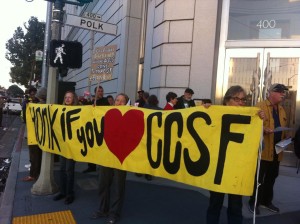
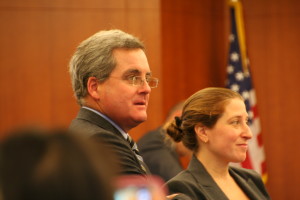
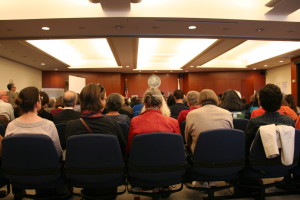
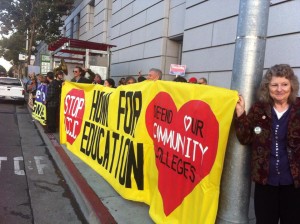
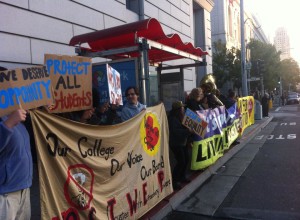
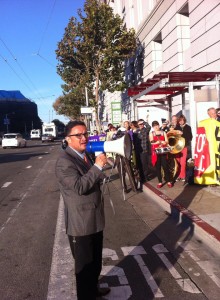

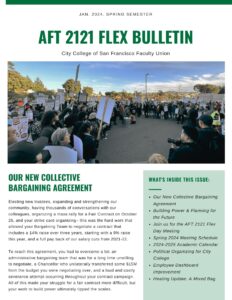
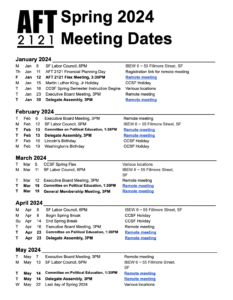
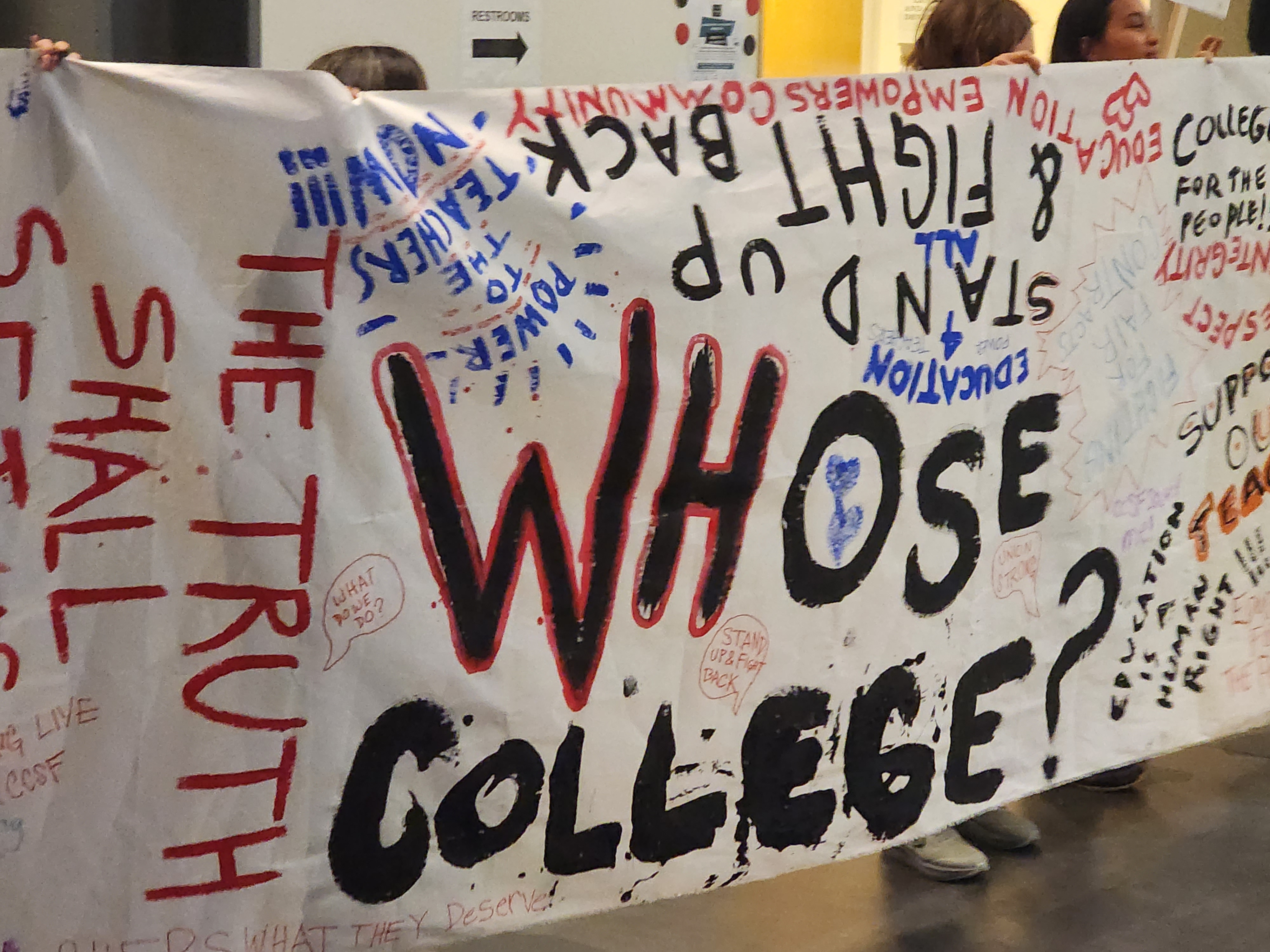
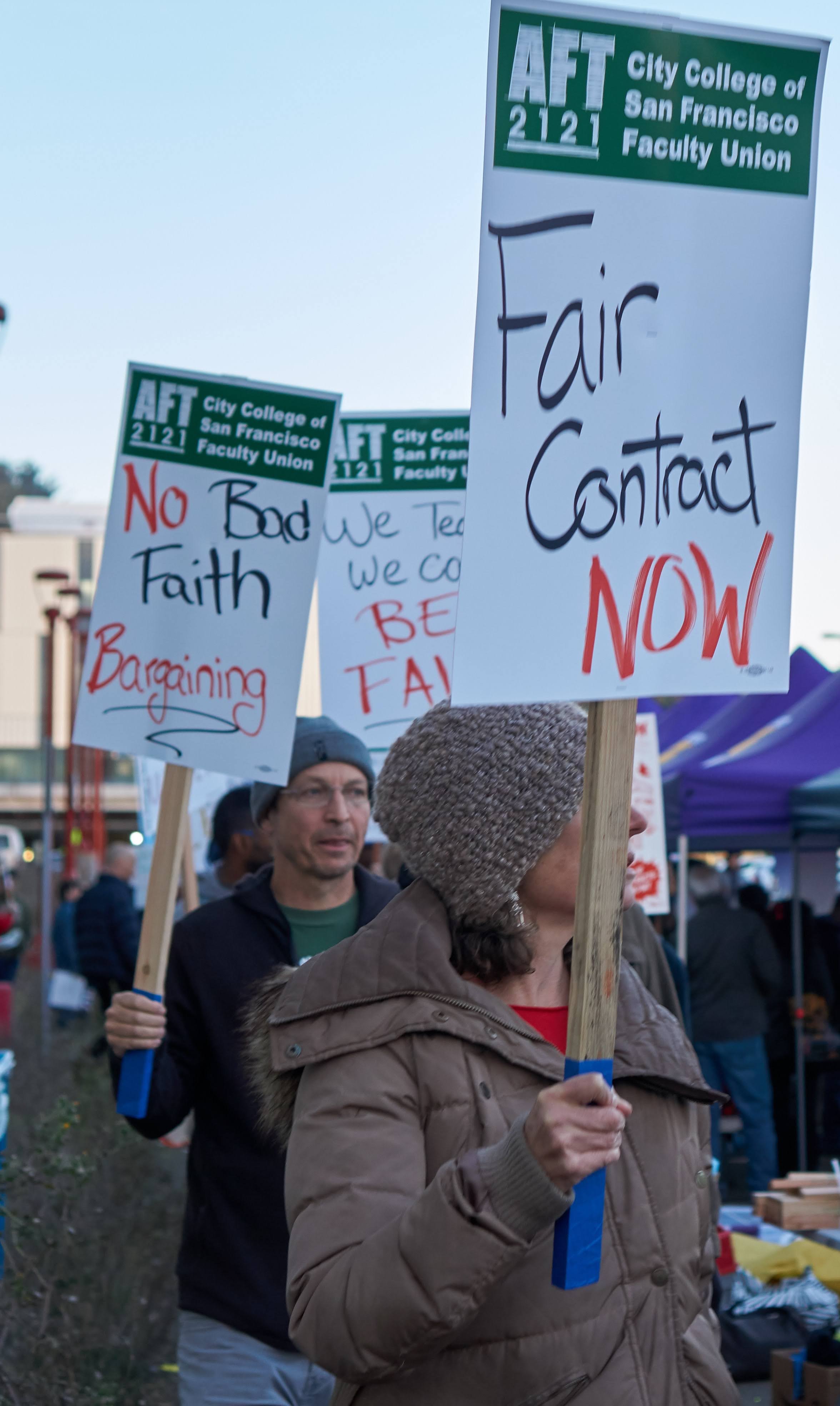
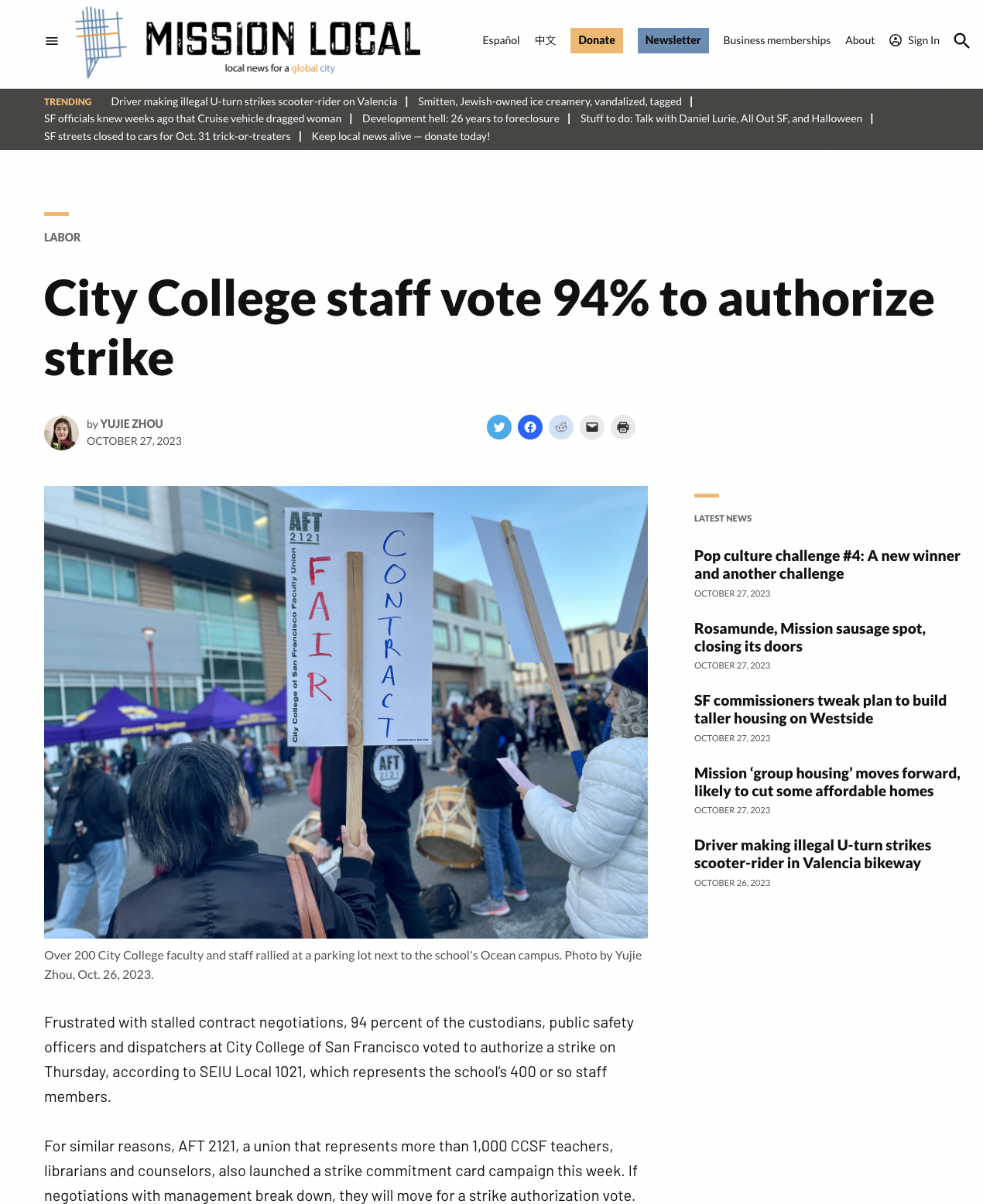
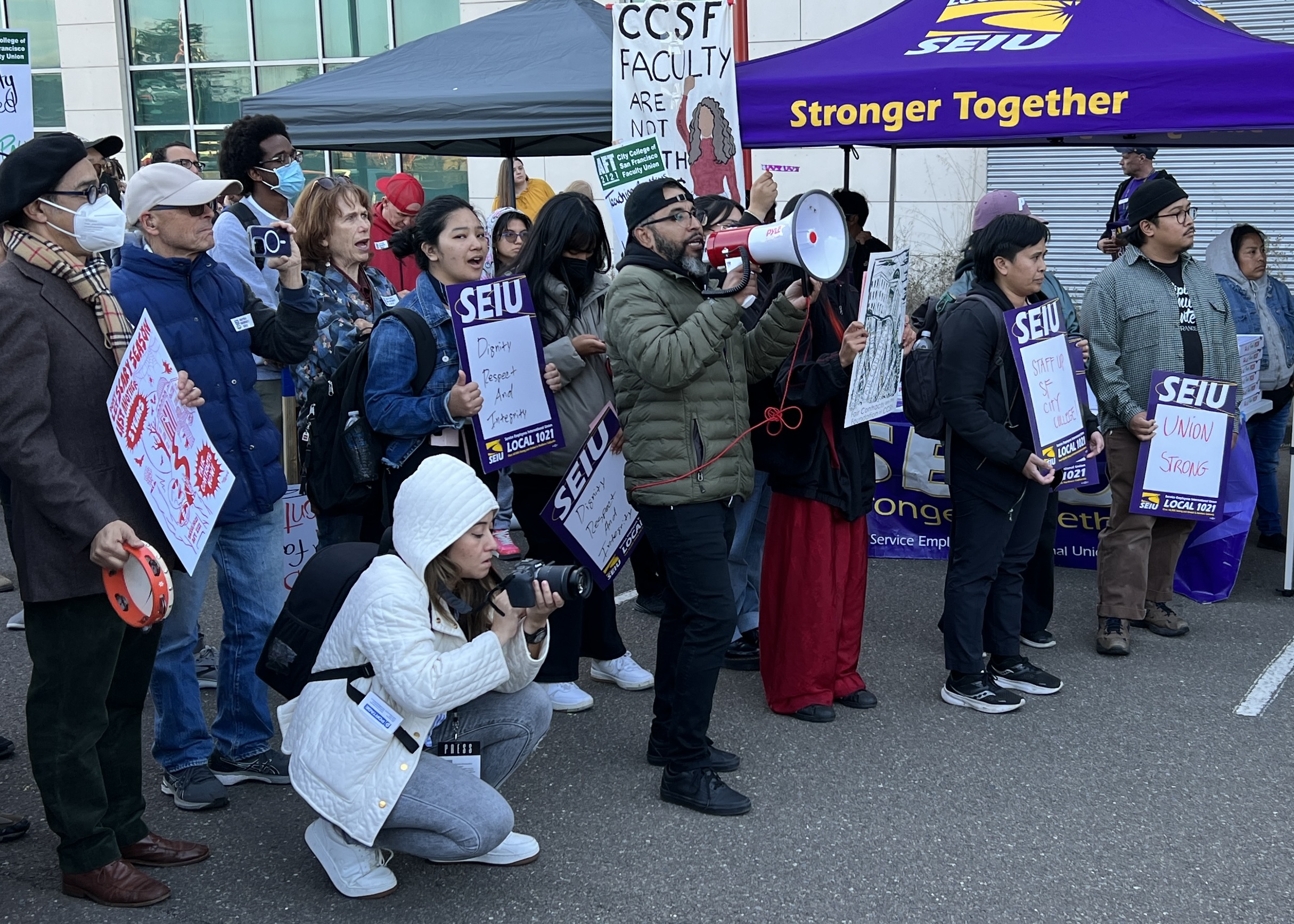
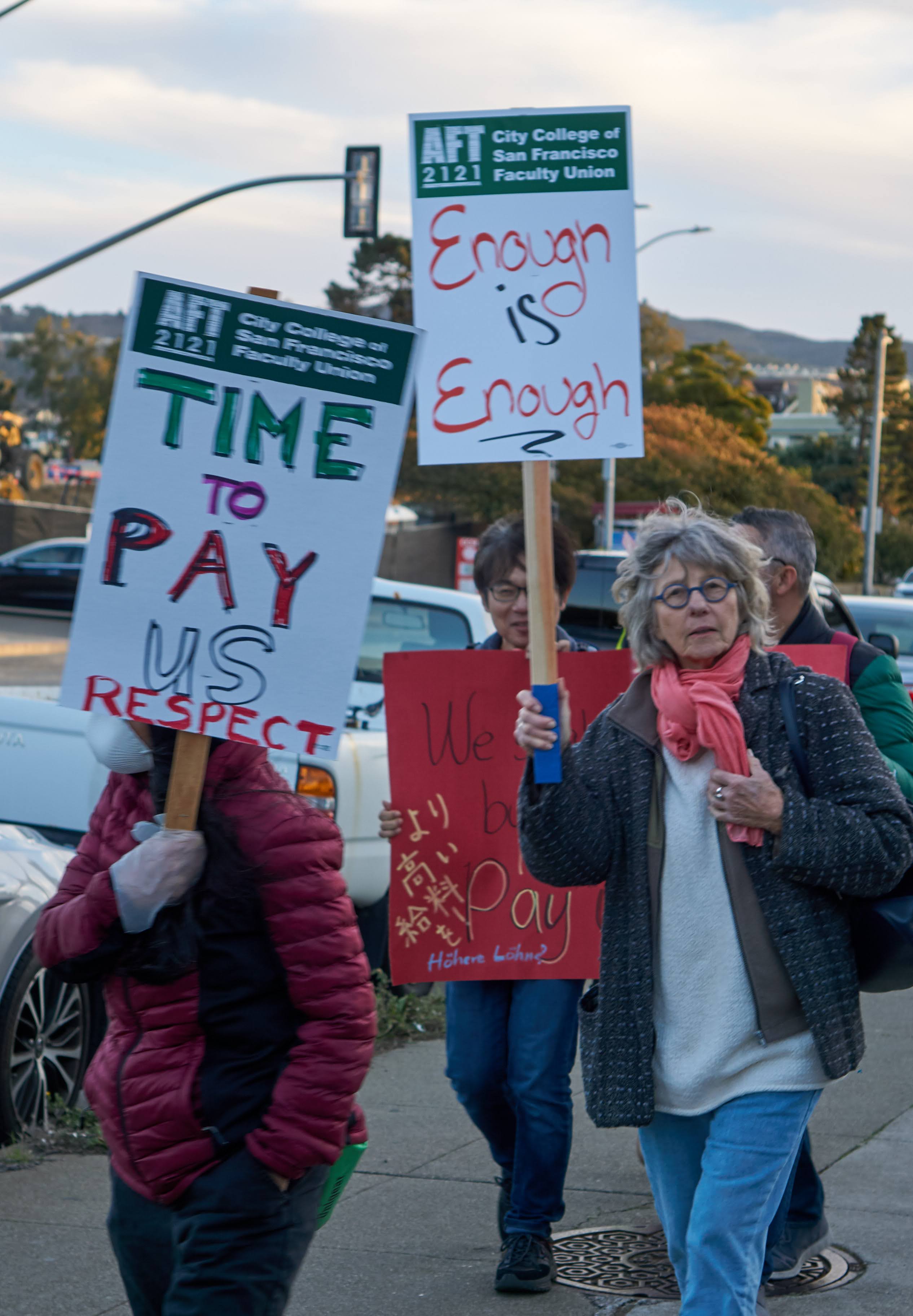
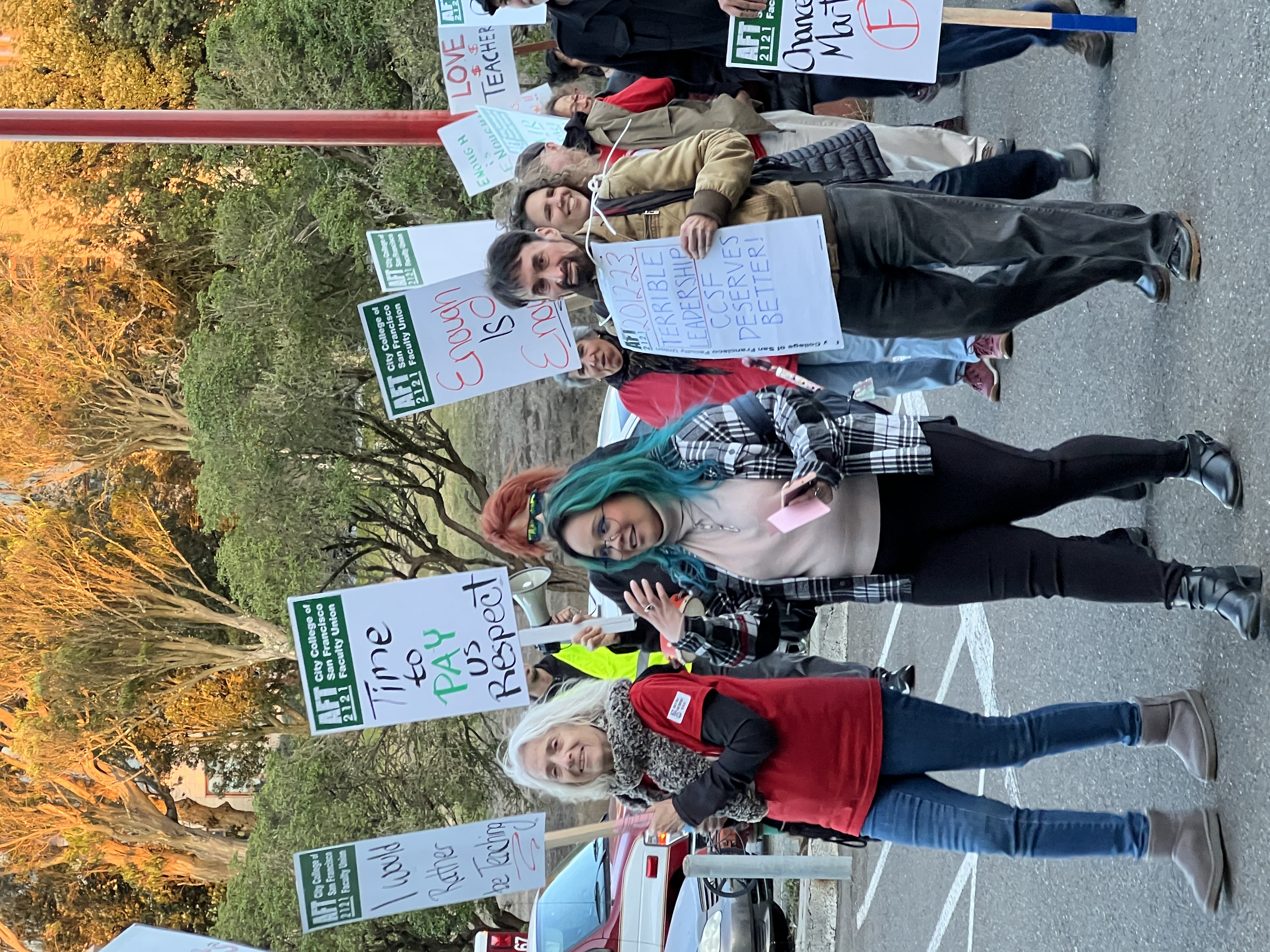
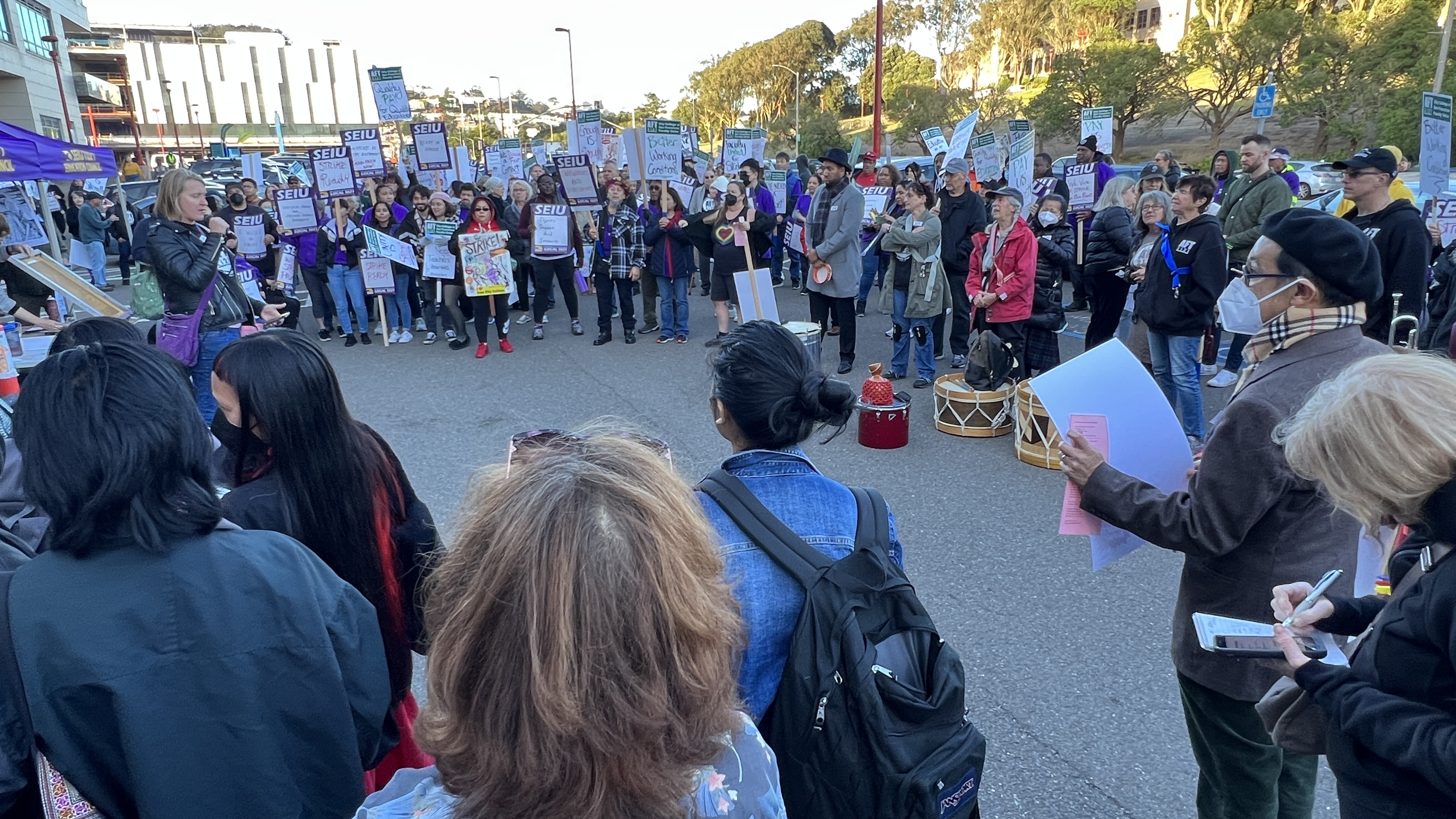
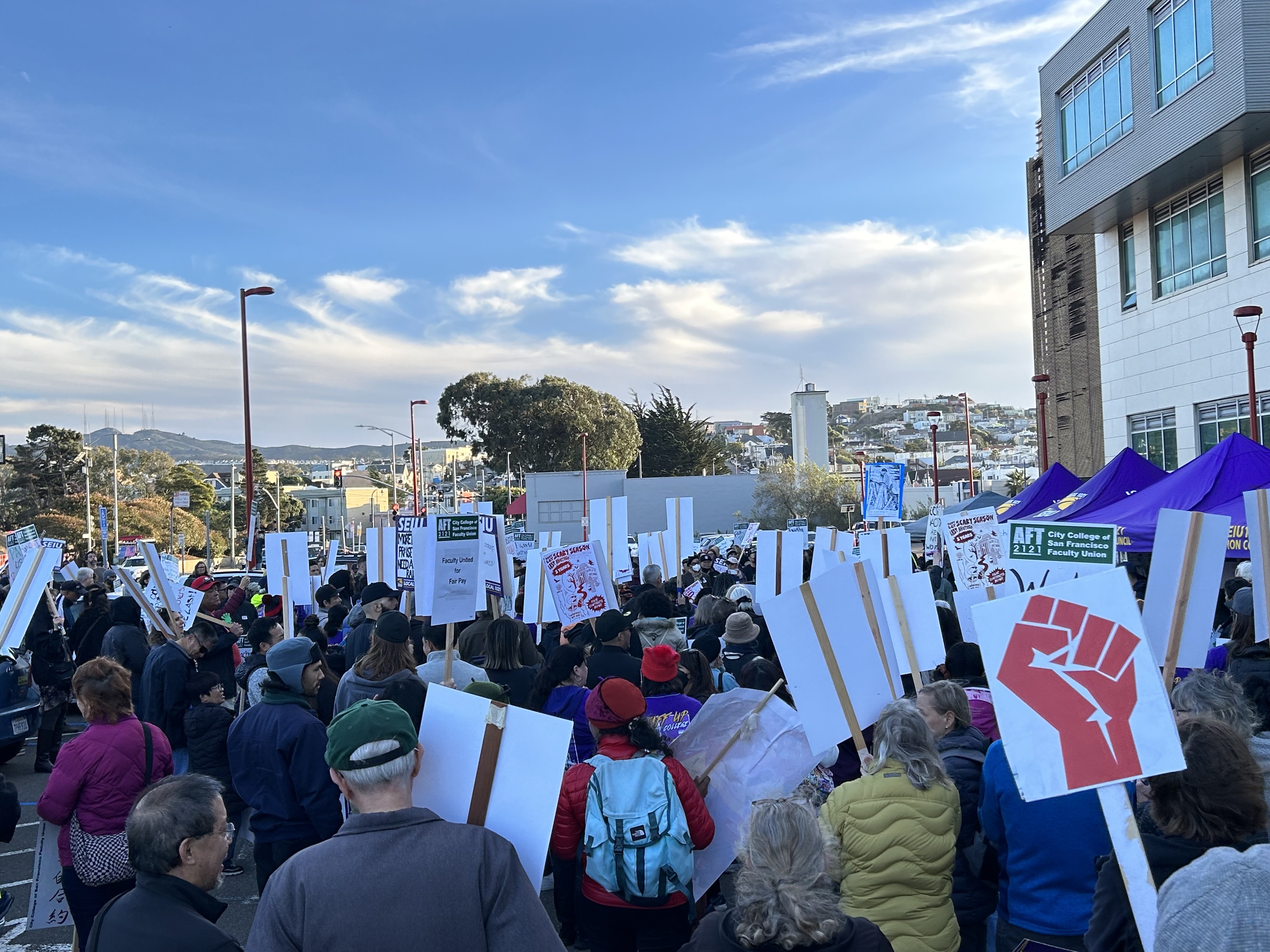
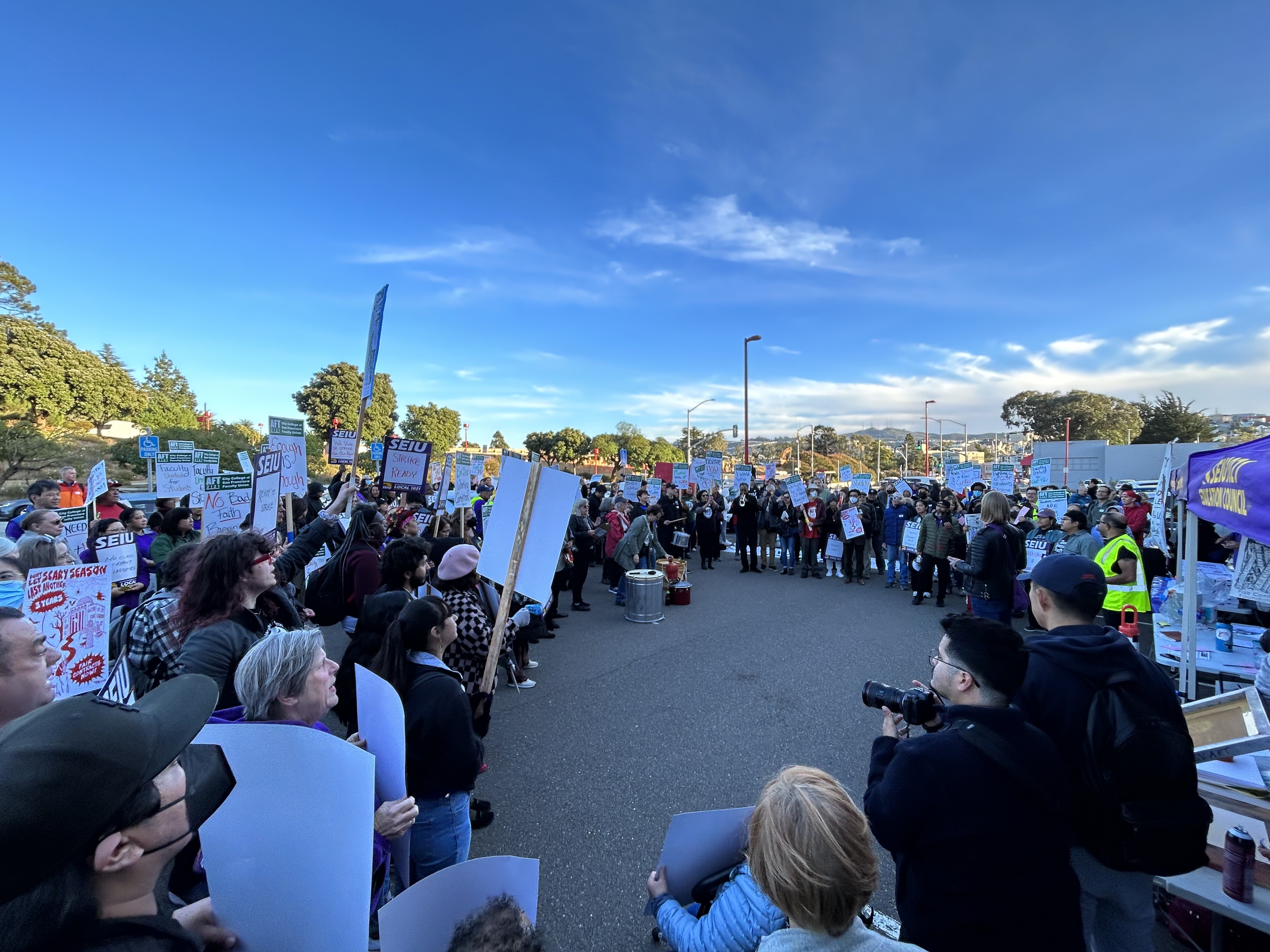
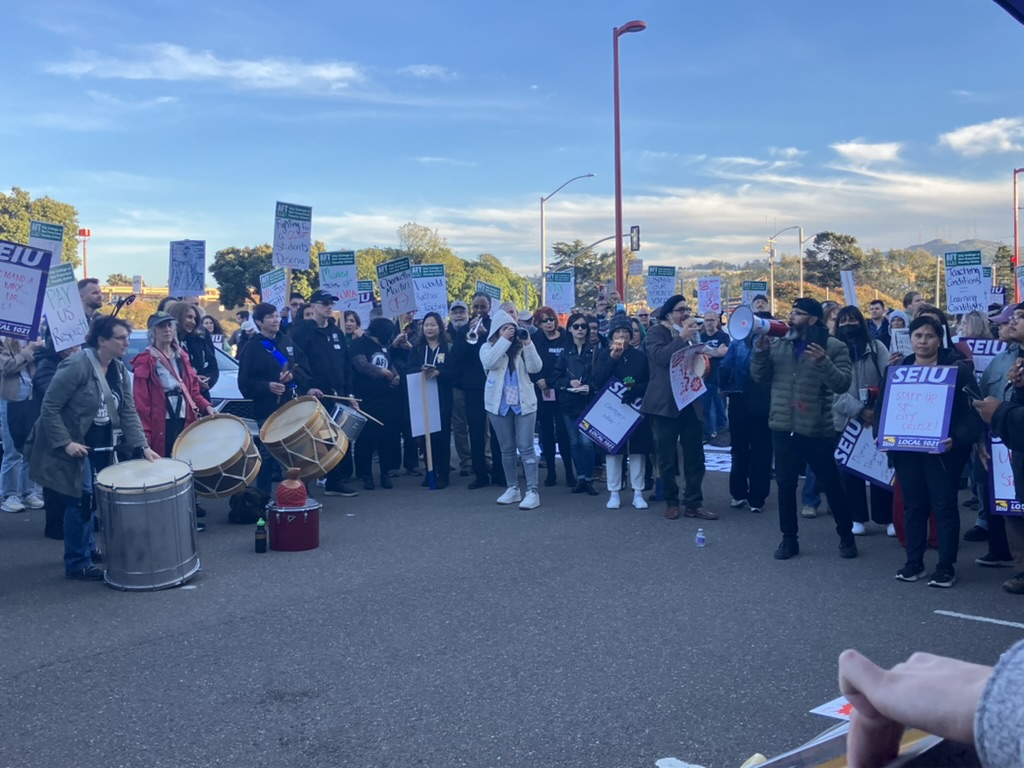
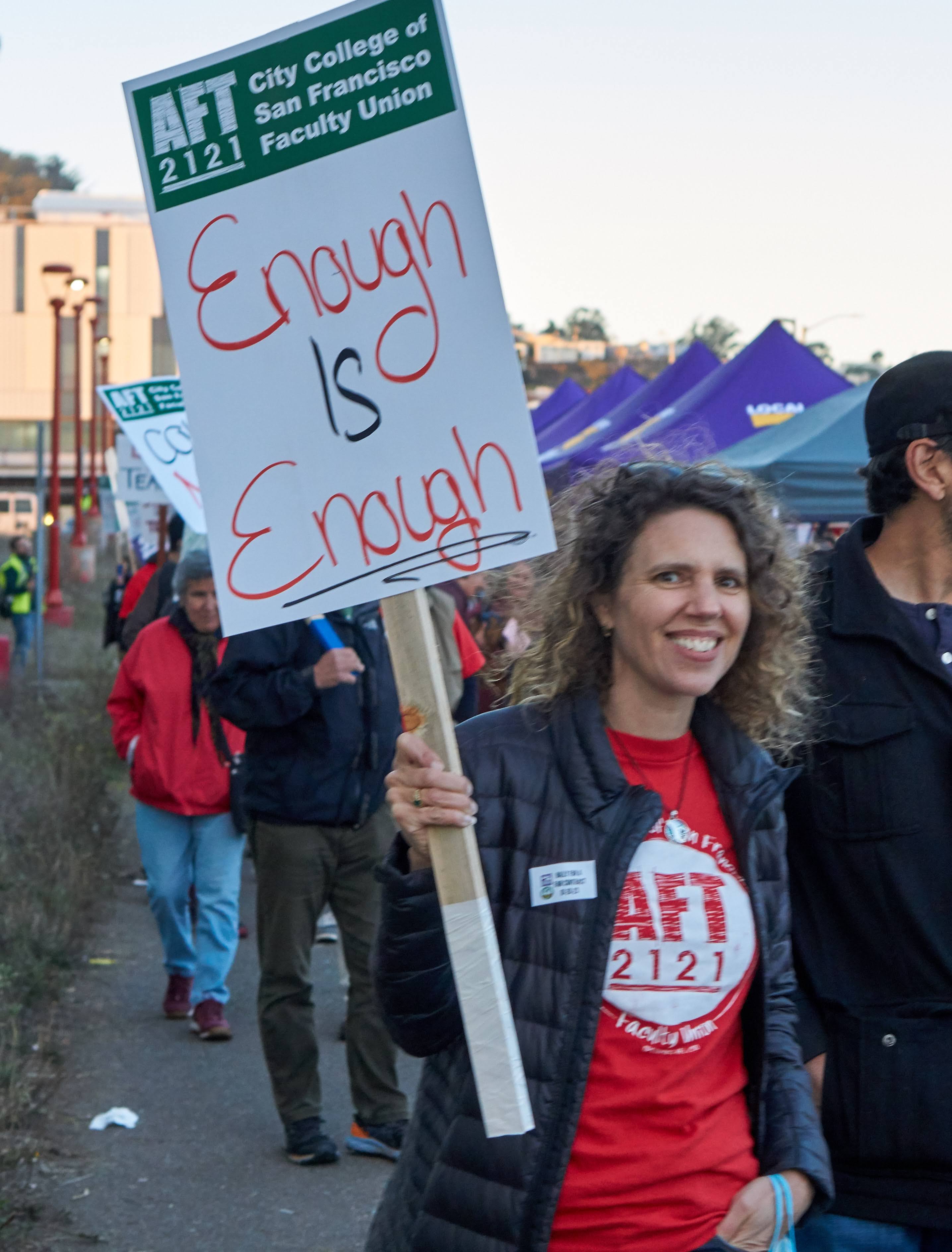

Follow Us!